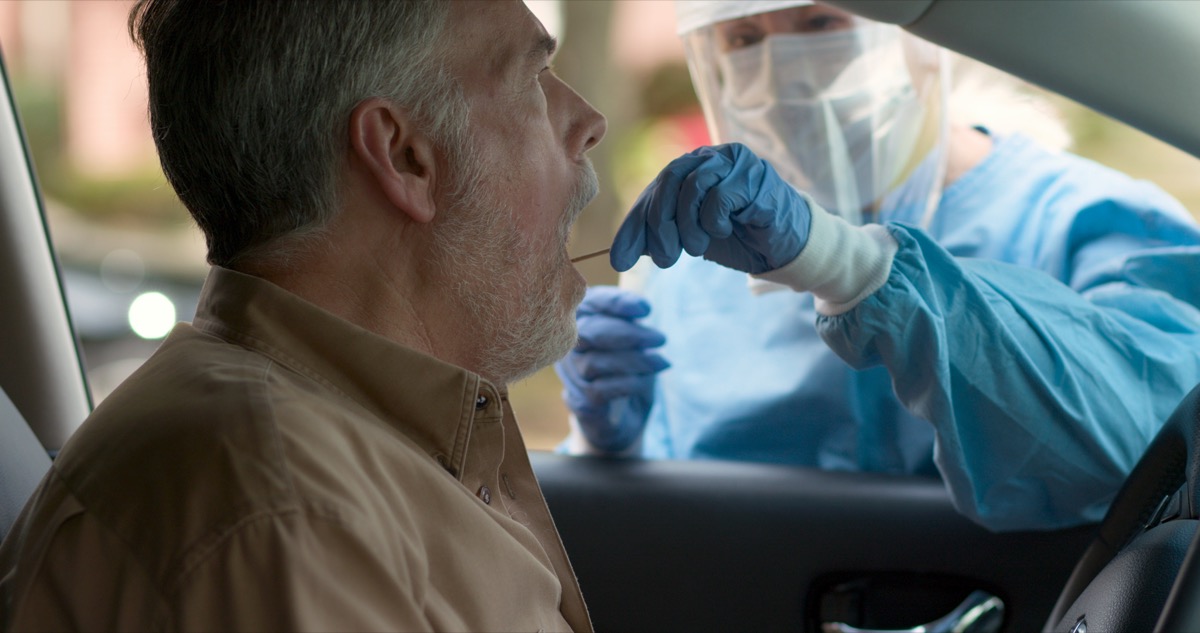A Chinese study published in Nature Medicine on June 18 found that common antibody levels were significantly lower in asymptomatic patients than those who exhibited coronavirus symptoms. The study observed 37 asymptomatic patients and 37 symptomatic patients and found that only 81.1 percent of asymptomatic patients tested positive for immunoglobulin G (IgG), a common antibody, around three to four weeks after exposure, while 83.8 percent of the symptomatic group tested positive for IgG. The levels were even more far apart for immunoglobulin M (IgM), which was only found in 62.2 percent of asymptomatic patients compared to 78.4 percent of symptomatic patients. RELATED: For more up-to-date information, sign up for our daily newsletter. “These data suggest that asymptomatic individuals had a weaker immune response to SARS-CoV-2 infection,” the study reads. After all, while it is still being researched, many experts believe the strong presence of antibodies may mean that a person is less likely to be infected with COVID-19—which is why antibody tests have become so popular. And while most people who recover from COVID-19—asymptomatic or not—develop antibodies, the extent and duration of that antibody protection is what researchers are still trying to determine. So with lower antibody levels developed if you’re asymptomatic the first time around, it may mean that you are then less able to fight off the coronavirus in the future than individuals with higher levels. Not only that, but the study also appears to show that antibody levels fade faster in asymptomatic patients than they do in symptomatic ones. Further down the road in the early convalescent phase, eight weeks after being discharged from the hospital, 40 percent of the asymptomatic patients tested negatively for IgG, while only 13 percent of the symptomatic patients tested negative.ae0fcc31ae342fd3a1346ebb1f342fcb “The IgG levels in the symptomatic group were still significantly higher than those in the asymptomatic group in the early convalescent phase,” the study explains. Researchers defined that phase for symptomatic patients as the eight weeks after a patient was discharged from the hospital. And for more on asymptomatic cases, check out Even Without COVID-19 Symptoms, You Could Have This Dangerous Side Effect.
